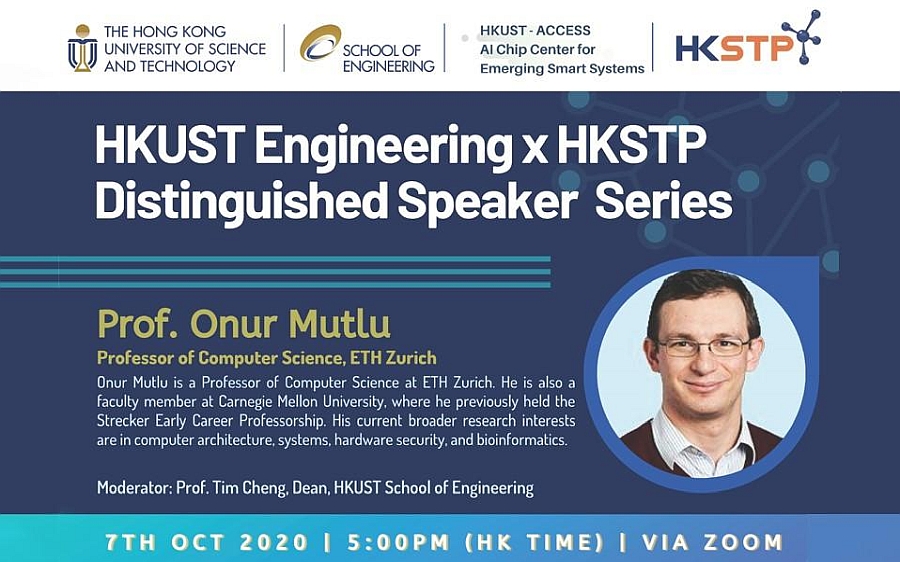Intelligent Architectures for Intelligent Machines
Overview
Computing is bottlenecked by data. Large amounts of application data overwhelm storage capability, communication capability, and computation capability of the modern machines we design today. As a result, many key applications' performance, efficiency and scalability are bottlenecked by data movement.
In this webinar, the speaker will describe three major shortcomings of modern architectures in terms of 1) dealing with data, 2) taking advantage of the vast amounts of data, and 3) exploiting different semantic properties of application data. The speaker and his research group argue that an intelligent architecture should be designed to handle data well. He will show that handling data well requires designing architectures based on three key principles: 1) data-centric, 2) data-driven, 3) data-aware. He will give several examples for how to exploit each of these principles to design a much more efficient and high performance computing system.
The speaker will especially discuss recent research that aims to fundamentally reduce memory latency and energy, and practically enable computation close to data, with at least two promising novel directions: 1) performing massively-parallel bulk operations in memory by exploiting the analog operational properties of memory, with low-cost changes, 2) exploiting the logic layer in 3D-stacked memory technology in various ways to accelerate important data-intensive applications. He will discuss how to enable adoption of such fundamentally more intelligent architectures, which he and his research group believe are key to efficiency, performance, and sustainability.
The speaker will conclude with some guiding principles for future computing architecture and system designs. Throughout the talk, he will point out how open source hardware can enable innovation in and adoption of the paradigms he and his research group introduce.



